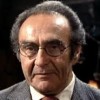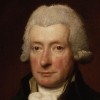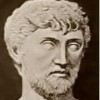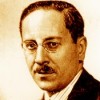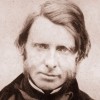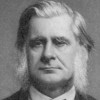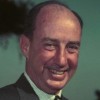We are all boarders on one table — White man, black man, ox and eagle, bee, & worm.
Quotations about:
nature
Note not all quotations have been tagged, so Search may find additional quotes on this topic.
In effect what Luther said in 1517 was that we may appeal to a demonstrable work of God, the Bible, to override any established authority. The Scientific Revolution begins when Nicolaus Copernicus implied the bolder proposition that there is another work of God to which we may appeal even beyond this: the great work of nature. No absolute statement is allowed to be out of reach of the test, that its consequence must conform to the facts of nature.
In nature nothing is done but in the cheapest way.
In the woods too, a man casts off his years, as the snake his slough, and at what period soever of life, is always a child. In the woods, is perpetual youth. Within these plantations of God, a decorum and sanctity reign, a perennial festival is dressed, and the guest sees not how he should tire of them in a thousand years. In the woods, we return to reason and faith. There I feel that nothing can befall me in life, — no disgrace, no calamity, (leaving me my eyes,) which nature cannot repair. Standing on the bare ground, — my head bathed by the blithe air, and uplifted into infinite space, — all mean egotism vanishes. I become a transparent eye-ball; I am nothing; I see all; the currents of the Universal Being circulate through me; I am part or particle of God.
Ralph Waldo Emerson (1803-1882) American essayist, lecturer, poet
“Nature,” ch. 1, Nature: Addresses and Lectures (1849)
(Source)
It is a profound mistake to imagine that Christianity ever intended to dissipate the bewilderment and even the terror, the sense of our own nothingness, which come upon us when we think about the nature of things. It comes to intensify them. Without such sensations there is no religion. Many a man, brought up in the glib profession of some shallow form of Christianity, who comes through reading Astronomy to realise for the first time how majestically indifferent most reality is to man, and who perhaps abandons his religion on that account, may at that moment be having his first genuinely religious experience.
All things are artificial, for nature is the art of God.
Thomas Browne (1605-1682) English physician and author
Religio Medici, Part 1, sec.16 (1642) [ed. Symonds (1886)]
(Source)
I’ve never understood all this fuss people make about the dawn. I’ve seen a few and they’re never as good as the photographs, which have the additional advantage of being things you can look at when you’re in the right frame of mind, which is usually around lunchtime.
By no means is the natural order of things fashioned for us by a divine agency: so greatly do the imperfections with which it has been endowed stand out.
[Nequaquam nobis divinitus esse paratam
naturam rerum: tanta stat praedita culpa]
[Wash is at his station on the bridge, playing with plastic dinosaurs.]
WASH [as Stegosaur]: Yes … yes, this is a fertile land, and we will thrive. We will rule over all this land, and we will call it … This Land.
WASH [as Allosaur]: I think we should call it … your grave!
WASH [as Stegosaur]: Ah! Curse your sudden but inevitable betrayal!
WASH [as Allosaur]: Ha ha ha! Mine is an evil laugh! Now DIE!
WASH [as Stegosaur]: Oh no, God, oh dear God in Heaven …
But, yes, people have asked why I don’t put people into my pictures of the natural scene. I respond, “There are always two people in every picture: the photographer and the viewer.” That usually doesn’t go over at all.
Ansel Adams (1902-1984) American photographer and environmentalist
Interview with David Sheff, Playboy (1 May 1983)
(Source)
There is nothing that I tell you with more eager desire that you should believe — nothing with wider ground in my experience for requiring you to believe, than this, that you never will love art well, till you love what she mirrors better.
John Ruskin (1819-1900) English art critic, painter, writer, social thinker
Eagle’s Nest, Lecture 3, “Relation of Wise Art to Wise Science,” sec. 41 (15 Sep 1872)
(Source)
The whole point of society is to be less unforgiving than nature.
Arthur D. Hlavaty (b. 1942) American writer, editor, publisher [a/k/a "Supergee"]
“Derogatory Reference” #100 (2002)
(Source)
The life, the fortune, and the happiness of every one of us, and, more or less, of those who are connected with us, do depend upon our knowing something of the rules of a game infinitely more difficult and complicated than chess. It is a game which has been played for untold ages, every man and woman of us being one of the two players in a game of his or her own. The chessboard is the world, the pieces are the phenomena of the universe, the rules of the game are what we call the laws of Nature. The player on the other side is hidden from us. We know that his play is always fair, just, and patient. But also we know, to our cost, that he never overlooks a mistake, or makes the smallest allowance for ignorance. To the man who plays well, the highest stakes are paid, with that sort of overflowing generosity with which the strong shows delight in strength. And one who plays ill is checkmated — without haste, but without remorse.
T. H. Huxley (1825-1895) English biologist [Thomas Henry Huxley]
“A Liberal Education and Where to Find It” (1868)
(Source)
All things pass in time. We are far less significant than we imagine ourselves to be. All that we are, all that we have wrought, is but a shadow, no matter how durable it may seem. One day, when the last man has breathed his last breath, the sun will shine, the mountains will stand, the rain will fall, the streams will whisper — and they will not miss him.
The gracious lesson taught by science to this country is that the history of Nature from first to last is incessant advance from less to more, from rude to finer organization, the globe of matter thus conspiring with the principle of undying hope in man. Nature works in immense time, and spends individuals and races prodigally to prepare new individuals and races.
Ralph Waldo Emerson (1803-1882) American essayist, lecturer, poet
“The Fortune of the Republic,” lecture, Boston (1878-03-30)
(Source)
Final version of a lecture first given in 1863, and his last public speech.
There is a pleasure in the pathless woods,
There is a rapture on the lonely shore,
There is society, where none intrudes,
By the deep Sea, and music in its roar:
I love not Man the less, but Nature more.George Gordon, Lord Byron (1788-1824) English poet
Childe Harold’s Pilgrimage, Canto 4, st. 178 (1818)
(Source)
Miracles arise from our ignorance of nature, not from nature itself.
[Les miracles sont, selon l’ignorance en quoy nous sommes de la nature, non selon l’estre de la nature.]
Michel de Montaigne (1533-1592) French essayist
Essays, Book 1, ch. 23 “On Custom and Not Easily Changing an Accepted Law [De la Coustume et de Ne Changer Aisément une Loy Receüe]” (1588-1592) (1.23) (1595) [tr. Lowenthal (1935)]
(Source)
The original essay is from 1572; this passage was added in the "C" period, prior to Montaigne's death and the final 1595 edition. The Lowenthal translation is from an edited autobiography, drawing from the Essays and other sources.
(Source (French)). Alternate translations:
Miracles are according to the ignorance wherein we are by nature, and not according to nature's essence.
[tr. Florio (1603), ch. 22]
Miracles appear such, according to our ignorance of nature, and not according to the real essence of nature.
[tr. Cotton (1686), ch. 22]
Miracles appear to be so, according to our ignorance of nature, and not according to the essence of nature.
[tr. Cotton/Hazlitt (1877), ch. 22]
Miracles exist from our ignorance of nature, not in nature herself.
[tr. Ives (1925)]
Miracles arise from our ignorance of nature, not from the essence of nature.
[tr. Frame (1943)]
Miraculous wonders depend on our ignorance of Nature, not on the essence of Nature.
[tr. Screech (1987)]
For this is also a miracle, not onely to produce effects against, or above Nature, but before Nature; and to create Nature as great a miracle, as to contradict or transcend her. Wee doe too narrowly define the power of God, restraining it to our capacities. I hold that God can doe all things, how he should work contradictions I do not understand, yet dare not therefore deny.
Thomas Browne (1605-1682) English physician and author
Religio Medici, Part 1, sec. 27 (1643)
(Source)
Sail, quoth the King; hold, saith the Wind.
Thomas Fuller (1654-1734) English physician, preacher, aphorist, writer
Gnomologia: Adages and Proverbs, #4064 (1732)
(Source)
From these things therefore it is clear that the city-state is a natural growth, and that man is by nature a political animal, and a man that is by nature and not merely by fortune citiless is either low in the scale of humanity or above it, like the “clanless, lawless, hearthless” man reviled by Homer, for one by nature unsocial is also ‘a lover of war’ inasmuch as he is solitary, like an isolated piece at draughts.
[ἐκ τούτων οὖν φανερὸν ὅτι τῶν φύσει ἡ πόλις ἐστί, καὶ ὅτι ὁ ἄνθρωπος φύσει πολιτικὸν ζῷον, καὶ ὁ ἄπολις διὰ φύσιν καὶ οὐ διὰ τύχην ἤτοι φαῦλός ἐστιν, ἢ κρείττων ἢ ἄνθρωπος: ὥσπερ καὶ ὁ ὑφ᾽ Ὁμήρου λοιδορηθεὶς “ἀφρήτωρ ἀθέμιστος ἀνέστιος:” ἅμα γὰρ φύσει τοιοῦτος καὶ πολέμου ἐπιθυμητής, ἅτε περ ἄζυξ ὢν ὥσπερ ἐν πεττοῖς.]
Aristotle (384-322 BC) Greek philosopher
Politics [Πολιτικά], Book 1, ch. 2 / 1253a.2 [tr. Rackham (1932)]
(Source)
See Homer. Original Greek. Alternate translations:
From these considerations, therefore, it is clear that the State is one of Nature's productions, and that man is by nature a social animal, and that a man who is without a country through natural taste and not misfortune is certainly degraded (or else a being superior to man), like that man reviled by Homer as clanless, lawless, homeless. For he is naturally of this character and desirous of war, since he has no ties, like an exposed piece in the game of backgammon.
[tr. Bolland (1877)]
Hence it is evident that the state is a creation of nature, and that man is by nature a political animal. And he who by nature and not by mere accident is without a state, is either a bad man or above humanity; he is like the "tribeless, lawless, hearthless one," whom Homer denounces -- the natural outcast is forthwith a lover of war; he may be compared to an isolated piece at draughts.
[tr. Jowett (1885)]
Hence it is evident that a city is a natural production, and that man is naturally a political animal, and that whosoever is naturally and not accidentally unfit for society, must be either inferior or superior to man: thus the man in Homer, who is reviled for being "without society, without law, without family." Such a one must naturally be of a quarrelsome disposition, and as solitary as the birds.
[tr. Ellis (1912)]
From these things it is evident, then, that the city belongs among the things that exist by nature, and that man is by nature a political animal. He who is without a city through nature rather than chance is either a mean sort or superior to man; he is "without clan, without law, without hearth," like the person reproved by Homer; for the one who is such by nature has by this fact a desire for war, as if he were an isolated piece in a game of backgammon.
[tr. Lord (1984)]
For a successful technology, reality must take precedence over public relations, for nature cannot be fooled.
Richard Feynman (1918-1988) American physicist
Rogers Commission Report into the Challenger Crash, Appendix F “Personal Observations on Reliability of Shuttle” (Jun 1986)
Full report
The Laws of Nature are just, but terrible. There is no weak mercy in them. Cause and consequence are inseparable and inevitable. The elements have no forbearance. The fire burns, the water drowns, the air consumes, the earth buries. And perhaps it would be well for our race if the punishment of crimes against the Laws of Man were as inevitable as the punishment of crimes against the Laws of Nature — were Man as unerring in his judgments as Nature.
For how can anything done by the will of God be contrary to nature, when the will of so great a creator constitutes the nature of each created thing? A portent therefore happens not contrary to nature, but contrary to what is known of nature.
[Quo modo est enim contra naturam, quod Dei fit uoluntate, cum uoluntas tanti utique conditoris conditae rei cuiusque natura sit? Portentum ergo fit non contra naturam, sed contra quam est nota natura.]
Augustine of Hippo (354-430) Christian church father, philosopher, saint [b. Aurelius Augustinus]
City of God [De Civitate Dei], Book 21, ch. 8 (21.8) (AD 412-416) [tr. Green (Loeb) (1972)]
(Source)
Commonly: "Miracles are not contrary to nature, but only contrary to what we know about nature."
(Source (Latin)). Alternate translations:
For how is that contrary to nature which happens by the will of God, since the will of so mighty a Creator is certainly the nature of each created thing? A portent, therefore, happens not contrary to nature, but contrary to what we know as nature.
[tr. Dods (1871)]
Nothing that happens by the will of God can be ‘contrary to nature.’ The ‘nature’ of any particular created thing is precisely what the supreme Creator of the thing willed it to be. Hence, a portent is merely contrary to nature as known, not to nature as it is.
[tr. Walsh/Honan (1954)]
For how can an event be contrary to nature when it happens by the will of God, since the will of the great Creator assuredly is the nature of every created thing? A portent, therefore, does not occur contrary to nature, but contrary to what is known of nature.
[tr. Bettenson (1972)]
The happiness of your life depends upon the quality of your thoughts: therefore, guard accordingly, and take care that you entertain no notions unsuitable to virtue and reasonable nature.
Marcus Aurelius (AD 121-180) Roman emperor (161-180), Stoic philosopher
Meditations, Book 3, #9 [tr. Collier (1701)]
(Source)
Alternate translations:
- "Use thine opinative faculty with all honour and respect, for in her indeed is all: that thy opinion do not beget in thy understanding anything contrary to either nature, or the proper constitution of a rational creature." [tr. Casaubon (1634), #10]
- "Reverence the faculty which produces opinion. On this faculty it entirely depends whether there shall exist in thy ruling part any opinion inconsistent with nature and the constitution of the rational animal." [tr. Long (1862)]
- "Hold in honor your opinionative faculty, for this alone is able to prevent any opinion from originating in your guiding principle that is contrary to Nature or the proper constitution of a rational creature." [tr. Zimmern (1887)]
- "Reverence your faculty of judgement. On this it entirely rests that your governing self no longer has a judgement disobedient to Nature and to the estate of a reasonable being." [tr. Farquharson (1944)]
We must trust the perfection of the creation so far, as to believe that whatever curiosity the order of things has awakened in our minds, the order of things can satisfy.
Ralph Waldo Emerson (1803-1882) American essayist, lecturer, poet
“Nature,” Introduction, Nature: Addresses and Lectures (1849)
(Source)
Observe constantly that all things take place by change, and accustom thyself to consider that the nature of the universe loves nothing so much as to change the things which are and to make new things like them.
Marcus Aurelius (AD 121-180) Roman emperor (161-180), Stoic philosopher
Meditations, Book 4, # 36 [tr. Long (1862)]
(Source)
Alternate translations:
- "Incessantly consider, all things that are, have their being by change and alteration. Use thyself therefore often to meditate upon this, that the nature of the universe delights in nothing more, than in altering those things that are, and in making others like unto them." [tr. Casaubon (1634), #29]
- "Accustom yourself to consider, that whatever is produced, is produced by alteration: that nature loves nothing so much as shifting the scene, and bringing new persons upon the stage." [tr. Collier (1701)]
- "Accustom yourself to consider that whatever is produced, is produced by alteration; that nature loves nothing so much as changing existing things and producing new ones like them." [tr. Zimmern (1887)]
- "Contemplate continually all things coming to pass by change, and accustom yourself to think that Universal Nature loves nothing so much as to change what is and to create new things in their likeness." [tr. Farquharson (1944)]
- "Observe how all things are continually being born of change; teach yourself to see that Nature's highest happiness lies in changing the things that are, and forming new things after their kind." [tr. Staniforth (1964)]
- "Constant awareness that everything is born from change. The knowledge that ther is nothing nature loves more than to alter what exists and make new things like it." [tr. Hays (2003)]
There are in nature neither rewards nor punishments — there are consequences.
Robert Green Ingersoll (1833-1899) American lawyer, agnostic, orator
“The Christian Religion” (1881)
(Source)
Nature is too thin a screen, — the glory of the One breaks in everywhere.
Ralph Waldo Emerson (1803-1882) American essayist, lecturer, poet
“Religion,” The Present Age Lecture 7, Boston (1840-01-29)
(Source)
Lecture series initially presented 4 Dec 1839 - 12 Feb 1840. This particular phrase can be found in Emerson's writing going back to 1837. It also was reused in his Cambridge lecture, "The Preacher" (5 May 1879), in a somewhat different context.
The phrase is also rendered "Nature is too thin a screen; the glory of the omnipresent God bursts through everywhere."


